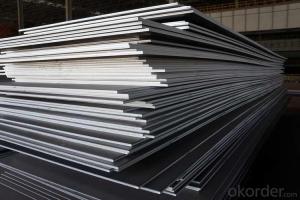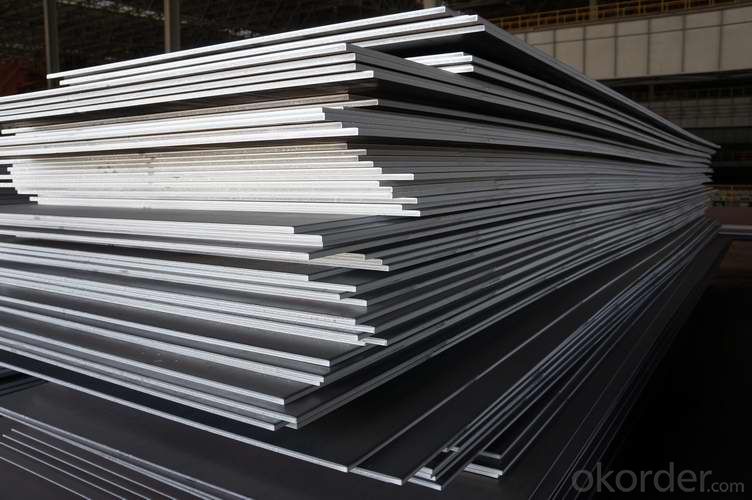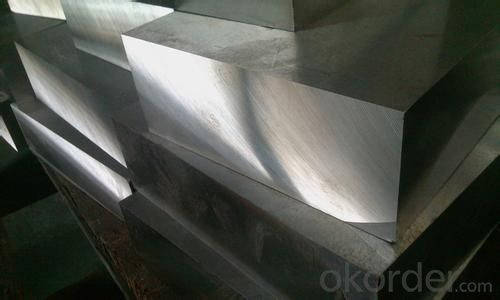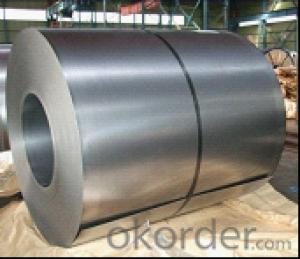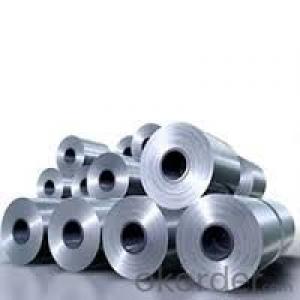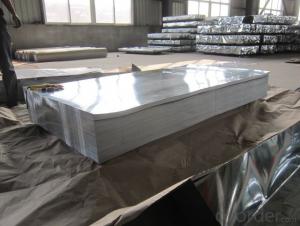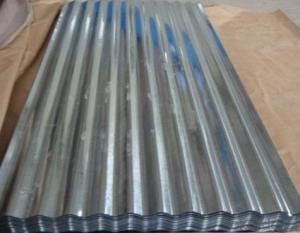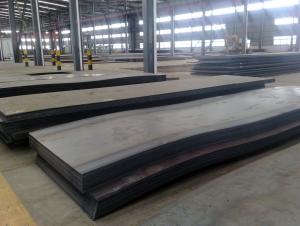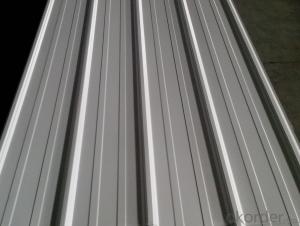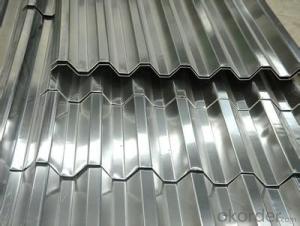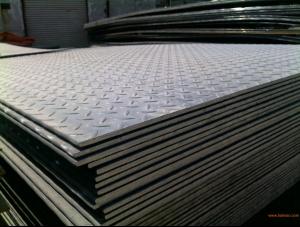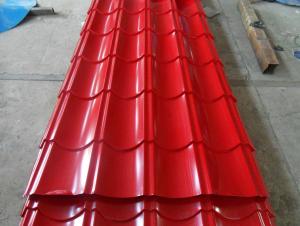Die or Mould Steel
- Loading Port:
- China Main Port
- Payment Terms:
- TT OR LC
- Min Order Qty:
- -
- Supply Capability:
- -
OKorder Service Pledge
OKorder Financial Service
You Might Also Like
Die steel was used in the manufacture of cold die, hot forging molding moldmold. The mould is the main processing tool manufacturing parts of machinery manufacturing, motor, electric instrument, radio and other industrial sectors in the. Mold quality directly affects the pressure processing technology, the precision of the product yield and quality of production cost, and the quality and service life of die except by reasonable structure design and machining precision, mainly affected by mould material and heat treatment.
Introduction
Die steel can be broadly divided into: cold die steel, hot die steel and plastic mould steel three class, used for forging, stamping, cutting type, die castingetc.. Because of various kinds of mold for different purposes, the workcondition is complex, so the mold steel, mold manufacturing according to theirworking conditions, should have the strength, hardness, high wear resistance,enough toughness, and high hardenability, hardenability and other process performance. Because this kind of different purposes, the complex working conditions, so the die steel performance requirements are also different.
Cold mould comprises a die, drawing die, drawing die, stamping die, thread rolling die, thread rolling plate, Leng Dunmo and cold extrusion die etc.. Mold steel cold work, according to the manufacture working conditions, have high hardness, strength, wear resistance and enough toughness, and highhardenability and hardenability and other process performance. For this kindof alloy tool steel for use in general belong to the high carbon alloy steel,carbon content was above 0.80%, chromium is an important alloying elementof this kind of steel, whose content is usually not more than 5%. But for somewear resistance requirement is very high, quenching after deformation is smalldie steel, the highest CR mass fraction of 13%, and to the formation of a large number of carbide, carbon content in steel is also very high, up to 2.0%~2.3%.Cold working die steel with high carbon content, the organization mostlyhypereutectoid steel or ledeburite steel. Steel commonly used with high carbon and low alloy steel, high carbon high chromium steel, chrome molybdenum steel, medium carbon chromium tungsten Bracelet steel etc..
Hot die forging, divided into hammer forging, extrusion and die-casting of several main types, including hot forging die, press forging die, stamping die,hot extrusion die and metal die casting die. Thermal deformation die at work in addition to bear great mechanical stress, but also bear the repeated heating and cooling do use, and caused great thermal stress. Hot work die steelshould have high strength, hardness and red hardness, wear resistance and toughness, but also should have high strength, good thermal stability, thermalfatigue resistance and corrosion resistance, also has high hardenability, so as to ensure the whole section has the mechanical consistency can. For die casting die steel, also has a surface layer after repeated heating and coolingdoes not crack, and subjected to liquid
Die steel
Die steel
State of the metal flow impact and erosion performance. This kind of steel is usually belongs to the medium carbon alloy steel, carbon content in 0.30%~0.60%, belongs to the sub eutectoid steel, there is also a part of steelas the alloy elements added more (such as tungsten, molybdenum, vanadium,etc.) and become the eutectoid or hypereutectoid steel. Steel commonly used with chromium manganese steel, chrome nickel steel, chromium, tungsten steeletc..
- Q: What is the thickness range for steel sheets?
- The thickness range for steel sheets typically varies from 0.4 millimeters to 6 millimeters, depending on the specific application and industry requirements.
- Q: Can the steel sheets be used for industrial machinery?
- Yes, steel sheets can be used for industrial machinery. Steel is a popular choice for the construction of industrial machinery due to its high strength, durability, and resistance to wear and tear. Steel sheets can be shaped, cut, and welded to create various components and parts required in industrial machinery. The versatility of steel allows manufacturers to design and fabricate machinery with precise specifications and requirements. Moreover, steel's ability to withstand heavy loads, extreme temperatures, and corrosive environments makes it suitable for use in a wide range of industrial applications.
- Q: What is the average thickness of steel sheets?
- The average thickness of steel sheets varies depending on the specific application and industry. However, common thicknesses range from 0.4 mm to 6 mm for general purposes, while thicker sheets can go up to 25 mm or more for specialized uses.
- Q: Can steel sheets be used for noise reduction purposes?
- Yes, steel sheets can be used for noise reduction purposes. Steel has high density and stiffness, which helps to block and absorb sound waves, reducing noise transmission. Steel sheets are commonly used in construction, industrial settings, and automotive applications to create barriers or enclosures that minimize noise levels.
- Q: Can steel sheets be used for storage tanks or containers?
- Yes, steel sheets can be used for storage tanks or containers. Steel is a durable and versatile material that can withstand high temperatures and pressure, making it suitable for storing various liquids, gases, or solids. Its strength and corrosion resistance properties make it a popular choice for industrial storage applications.
- Q: Can steel sheets be used for automotive manufacturing?
- Yes, steel sheets can be used for automotive manufacturing. Steel sheets are commonly used in the automotive industry for various applications, including body panels, chassis components, and structural parts. Steel offers excellent strength, durability, and formability, making it a preferred material for automotive manufacturers. Additionally, steel sheets can be easily shaped and welded, allowing for efficient fabrication processes in automotive manufacturing.
- Q: Can steel sheets be used for outdoor sculptures or artwork?
- Yes, steel sheets can definitely be used for outdoor sculptures or artwork. Steel is a highly durable and strong material, making it suitable for outdoor environments where sculptures and artwork may be exposed to harsh weather conditions. Steel sheets can be bent, cut, and welded into various shapes and forms, allowing artists to create unique and intricate designs. Additionally, steel can be painted or coated to prevent rust and corrosion, ensuring the longevity of the artwork. Many famous outdoor sculptures around the world are made from steel, showcasing its versatility and suitability for outdoor use.
- Q: Are the steel sheets suitable for marine environments?
- Yes, steel sheets are suitable for marine environments. Steel is a commonly used material in marine applications due to its high strength, durability, and corrosion resistance properties. Steel sheets are often coated with protective layers, such as galvanization or paint, to further enhance their resistance to corrosion from saltwater exposure. Additionally, steel sheets can be fabricated to meet specific requirements, such as thickness and size, making them versatile for various marine applications including shipbuilding, offshore structures, and marine equipment. Overall, steel sheets are a reliable and suitable choice for use in marine environments.
- Q: What are the uses of steel sheets?
- Steel sheets have a wide range of uses across various industries, including construction, automotive, manufacturing, and appliances. They are commonly used for roofing, siding, and structural purposes in buildings. Steel sheets are also used in the production of automobiles, ships, and aircraft due to their strength and durability. Additionally, they are utilized as raw materials for manufacturing machinery, appliances, and electrical equipment.
- Q: Can steel sheets be used for solar panel frames?
- Yes, steel sheets can be used for solar panel frames. Steel is a durable and strong material that can provide stability and support to solar panels. It is often used in the construction of solar panel frames due to its resistance to corrosion and ability to withstand harsh weather conditions.
Send your message to us
Die or Mould Steel
- Loading Port:
- China Main Port
- Payment Terms:
- TT OR LC
- Min Order Qty:
- -
- Supply Capability:
- -
OKorder Service Pledge
OKorder Financial Service
Similar products
Hot products
Hot Searches
Related keywords
